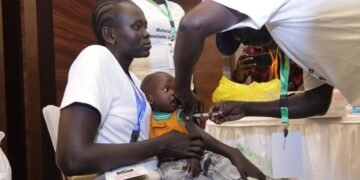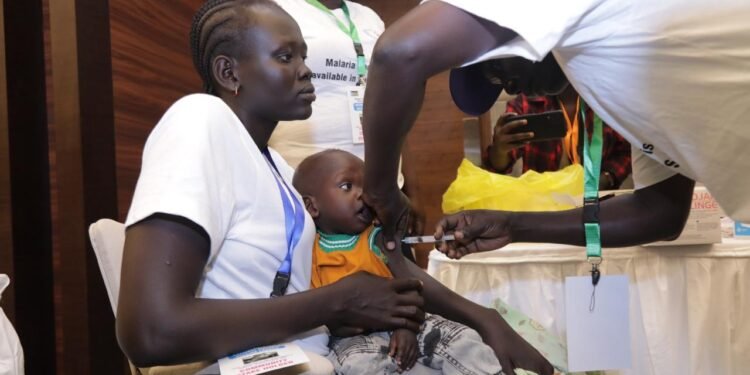The Ministry of Health has launched the second phase of the R21 malaria vaccine rollout, extending coverage to 52 additional counties across South Sudan in an effort to protect over 324,000 children aged 5 to 23 months from the deadly disease according to a joint press statement.
The move, supported by the World Health Organization (WHO), UNICEF, Gavi, and JSI, follows last year’s introduction of the vaccine in 28 high-burden counties.
Malaria remains the country’s leading public health threat, with 5.5 million cases and over 4,000 deaths recorded annually. Prevalence among children under five has risen from 32% in 2017 to 52.6% in 2023.
While the first phase, launched in July 2024, reached nearly 149,000 children with the first dose, only 7.6% completed the full four-dose schedule.
Health Minister Sarah Cleto Rial described the steep drop-off as “concerning” and called for improved service delivery, follow-up systems, and community engagement.
Partners have also provided critical support to combat malaria. WHO delivered commodities worth over USD 356,000 in early 2025, UNICEF facilitated treatment for 1.26 million cases, and more than 400,000 doses of the R21 vaccine were distributed in the first phase.
UNICEF Representative Noala Skinner hailed the second phase as “a pivotal step” in protecting South Sudan’s children, adding that the vaccine complements other measures such as insecticide-treated nets and antimalarial drugs.
The vaccine schedule involves three doses at 5, 6, and 7 months of age, followed by a booster at 18 months.
The Ministry of Health urged parents to ensure all eligible children are vaccinated. Plans are also underway for the nationwide distribution of 9.5 million insecticide-treated nets in 2026.












